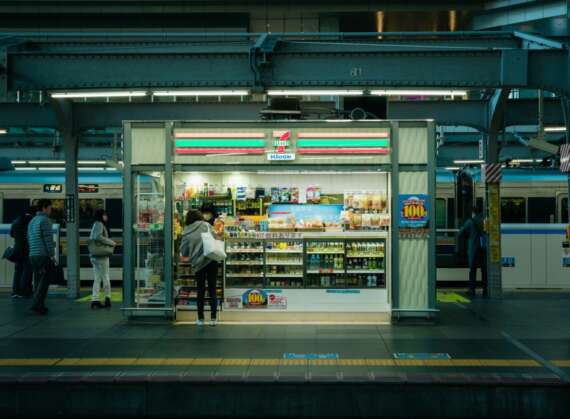
Explaining the baito permit, exceptions and the new individual approval (個別許可) scheme for foreign students
Written for and also published at Why Japan
The information of this article is accurate as of 21st March 2022.
For you students reading this, I think most of you know of the 28-hour baito limit. Your schools, sempais and other people have probably reminded, scolded, and warned you enough about it for you to understand that going over this limit may cause you visa trouble in the future.
The problem is that there are exceptions for this which allow a foreign student to work more than 28 hours – and I’m not referring to the 8 hour a day working limit during academic holidays.
In fact, the rules about the baito permit changed around 2020 with pretty much no-one outside the central government being aware. In this change some things have gotten stricter, and some things have gotten more relaxed. Unfortunately, this information is now just hidden on a webpage on the immigration bureau’s site and only in Japanese.
I therefore wanted to write an article half-translating but also half-commenting about these changes so that you can be aware of your choices and also to ensure that you do not run afoul of the rules.
The principles of the “baito permit”

Let’s start by establishing some basics. The “baito permit” is technically called the 資格外活動許可 or “permission to perform activities outside visa class”. This is awarded to people not just for students but also to people from other visa classes such as dependents for them to work a certain number of hours a week and gain an income in Japan.
Be aware that any permit is awarded subject to the following principles, outlined here and summarized:
- That the “activities outside visa class” do not negatively affect the main activity stated in the visa class.
- i.e., if you are failing school because you are doing too much baito you could technically get your baito permit cancelled.
- That you actually are performing activities in your main visa class.
- i.e., that you are actually studying.
- Where these activities fall under designated types, except for the “general permit” (explained later).
- Where these activities are not illegal or fall under the vice trade law.
- That you have not received an order of detainment or legal questioning.
- Where you follow normal social rules.
- And if you are in Japan with a visa under an agreement / contract with a Japanese entity (both private and public), that this entity agrees to you performing work outside your visa class
- Note that this is where schools can object to and block you from doing part-time work.
- This is also why if you can get the permit at the airport at the point of first entry it may be advisable to do so.
What’s new is that there is now a division between a “general approval” (包括許可) and an “individual approval” (個別許可).
The general approval (包括許可)
This is the one that most of you will be applying for and working under. This is basically the 28-hour work permit during term time, 40-hour work permit during holiday permit that basically applies if you are receiving a per hour salary.
Do note that immigration has also clarified that you can work as an individual proprietor (i.e., freelance) if there is an objective way to prove your hours worked. The basic case as an example is Uber Eats deliveries. Uber Eats delivery people technically work as freelancers but because their hours are clearly tracked it and provable, they can do their work under the general approval.
Nothing really has changed regarding the application for this so I’ll move on.
The individual approval (個別許可)
This is the new system. This “individual approval” is basically immigration saying that they want to screen cases where people do work that cannot be objectively tracked by the hour or where there are other circumstances where crossing 28 hours is justified. Immigration will judge the validity of each individual application through this system.
For students, this page states clearly where an individual approval may be given:
Option 1: Participating in internships aimed at eventual employment

Requirements:
- Being a bachelor’s student, being in your last year of studies and having almost all your credits finished.
- Finishing 90% of your credits and being in your last year is a good metric.
- Being a graduate student and being in your last year.
- Needing to do practicums or (paid) research which is directly tied to either your field of research or to gain academic credits.
For this you will need to submit:
- The normal application form.
- A letter from the accepting organization (eg. Internship company) stating the contract, scope of activities, duration, location pay etc.).
- Your student ID.
- (For bachelors students only) A statement of how many credits you have earned and how many you need to graduate.
Option 2: Either of the following.

(This is also where freelance work whose hours cannot be easily tracked will have to be applied under)
Requirements:
- Where the activities fall under what society would commonly consider to be normal activities conducted by foreign students or by students as a whole. Examples given are as language instruction, interpretation or cram schoolteachers.
- Where the activities are in preparation to start a company in Japan (ie. in preparation for entrepreneurship)
For this you will need to submit:
- The normal application form
- An explanation letter stating the content of your activities, how long you will spend on them, remuneration etc.
Do note that immigration also explicitly states that they expect applications for freelancing to be at most at an individual scale. Incorporating a new legal entity, hiring people or having an office likely goes over the boundaries of the student visa and may necessitate a switch to the Business Manager’s visa.
Some thoughts

As you can see there is a lot of ambiguity in the above individual approval here, especially for (2). We do not know how strict screening is and how immigration judges what is a valid application. At least one kohai of mine has gotten an individual approval for freelance work though.
Nonetheless, the above means that there are now clear routes for students to work above 28 hours. Ostensibly, freelancing for above 28 hours could also be accepted if a valid justification is provided.
Note where it’s gotten stricter
For people who have come to Japan quite a while back though, it may be important for you to take note of where things have become stricter.
Before 2020, having the baito permit also allowed you to work 28 hours per week and 40 hours during the holidays. Nothing different from before. But what about things which were not salaried by the hour such as freelance work?
There were no explicit guidelines about this kind of thing. And because there were no hours to count and type of most freelance work (design, coding, translation for example) would fall under the activities allowed by the baito permit, it was pretty much a de facto opportunity for students with non-salaried incomes to earn all they wanted. Including students who took this opportunity to set up their own company.
The changes have made it explicit that work without an objectively quantifiable number of hours needs to be individually approved by immigration and no longer automatically included under the normal baito permit. If you started doing something under the previous rules, beware that you may be in a gray area with the new ones though no one except for immigration knows the consequences of this.
Half glass full

Now if you are just doing a normal baito – which is the majority of you reading this – this really shouldn’t affect you and things go on as they have before.
But this rule change does mean that there are more opportunities but also more bureaucratic headache at the same time.
But in the end, as I often say on this blog, be aware so that you can avoid trouble and exploit the opportunities that you can find. Hope this helps!

2 Comments
by chairojin
Thanks for writing this article. It was a very useful guide for me when I applied for the special permission. I got an internship that required me to work for more than 28 hours during the school season but the visa attorney appointed by the company said that it’s not possible. Then I came across this guide and applied by myself and obtained the permission. Thanks a lot for the valuable information.
by AustZ
Oh I’m happy that it was useful to you! Thanks for reading!